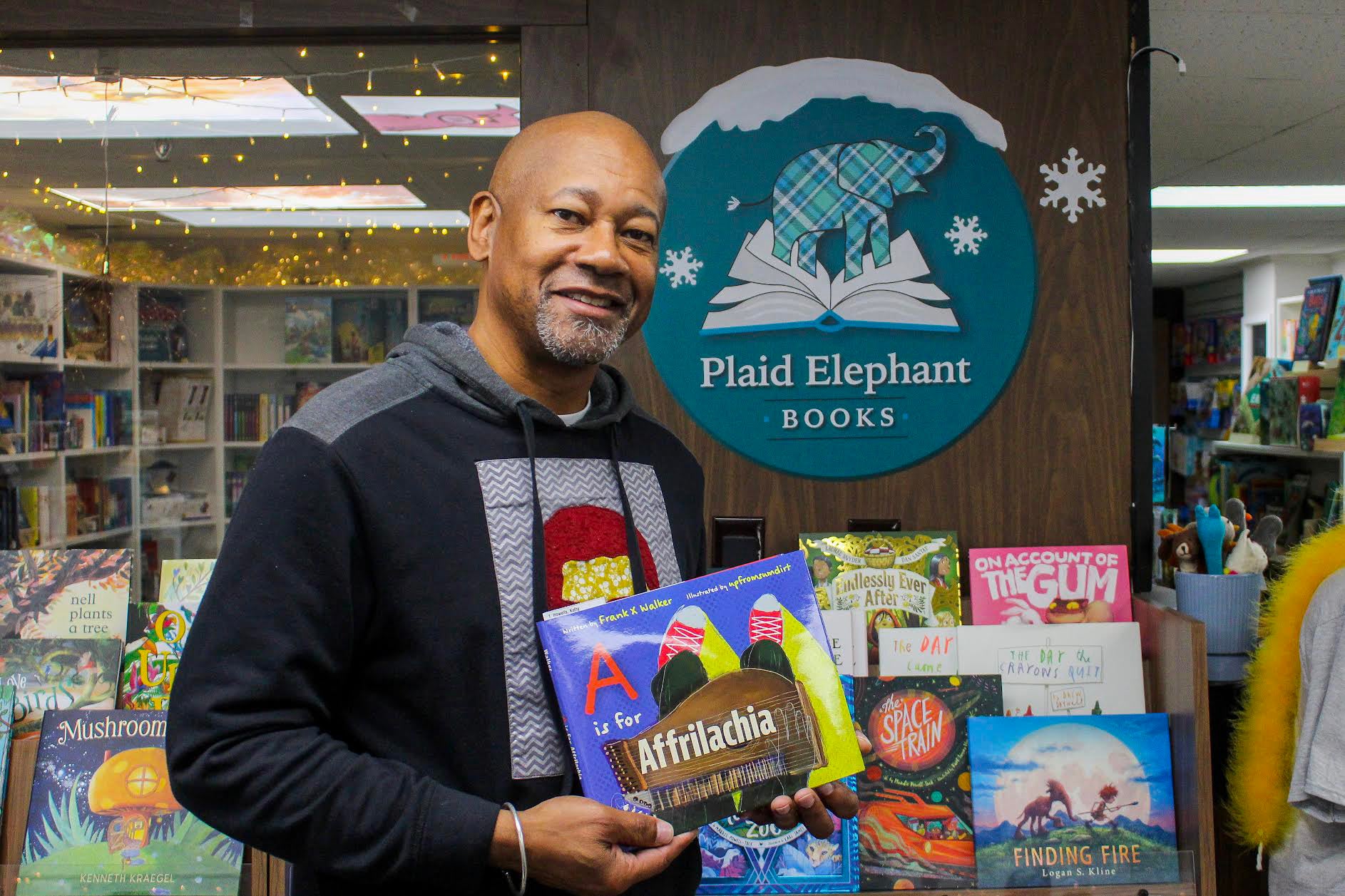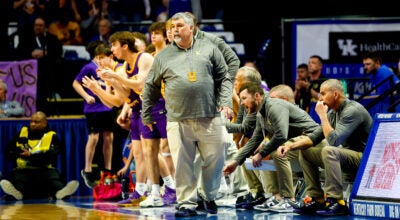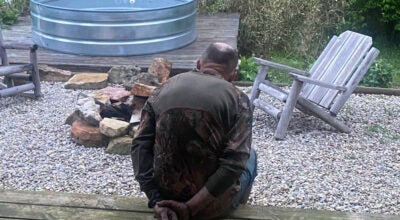Black History Month: Walker’s new children’s book shares ABCs of Affrilachian history
Published 12:55 pm Tuesday, February 14, 2023

- Author Frank X Walker launched his new children's book "A is for Affrilachia" at Plaid Elephant Bookstore on Saturday. Photo by Fiona Morgan
|
Getting your Trinity Audio player ready...
|
BY FIONA MORGAN
Danville native author Frank X Walker is sharing Black Appalachian history with kids in his new children’s book, “A is for Affrilachia.”
Walker coined the phrase “Affrilachia” to recognize the voices and accomplishments of African Americans in the Appalachian region.
Walker is an artist, writer, and educator who has published eleven collections of poetry, and was the first African American writer to be named Kentucky Poet Laureate. He has been studying and promoting diversity in Appalachia for over 30 years. He currently teaches at University of Kentucky.
During the book launch at Plaid Elephant Bookstore in Danville on Saturday, people came from around the region to get their books signed. Walker sold out of books at the event.
“A Is for Affrilachia” goes through the alphabet naming famous historical African American Appalachians, including musicians, actors, artists, activists, and others. It also names mountain ranges, literary works, and coal mining implements.
Famous names include playwright August Wilson, Bishop T.D. Jakes, writer Nikki Giovanni, actor Chadwick Boseman, singers Nina Simone, Roberta Flack and Bessie Smith.
“Those are just examples of historical luminaries that this book talks about, while talking about what Appalachia is and where Appalachia is,” Walker explained. “The only thing the book is missing is a map.”
Appalachia covers 13 states between the Midwest and the Eastern U.S. The region stretches from Northern New York to Northern Alabama.
When explaining what’s different about Affrilachian culture and heritage as opposed to other African American culture and heritage, Walker said, “There’s a sense of independence, commitment to family, music, and oral tradition that’s extra strong because it has an Appalachian context.”
He continued, “The love for music and for teaching family members to sing and play musical instruments, that’s very alive and prominent in Appalachia, and in Affrilachian families too. A lot of people don’t connect banjo playing and African American people in the same space, but they should, given the history of the instrument.”
The banjo was created by enslaved Africans in North America. Walker explained that people don’t usually know that the “Father of Black History,” Carter G. Woodson, is from Appalachia. Woodson is from Virginia, and was instrumental in establishing February as Black History Month in 1976. He said that Woodson and Appalachia are not usually discussed together.
He also said people don’t usually realize that many of the historic civil rights activities that helped shape the country happened in Appalachia.
The book recognizes one tragic event in Birmingham Alabama, the 16th Street Baptist Church bombing by white supremecists in 1963. Letters in the book represent the four girls, Addie Mae Collins, Denise McNair, Carole Robertson and Cynthia Wesley, who were killed in the bombing.
In many ways, Walker said white Appalachian and Affrilachian culture are similar; that they listen to the same music, eat the same foods, and enjoy family in the same ways. It just has African ancestry as well.
“The book tries to pull together what it means to be an Appalachian, and force a redefinition of how people think about the region, who’s there, and what’s officially a part of the region, in a way that I hope makes people more proud of the space or more interested in the space than they’ve ever been,” Walker said.
Walker lived in Danville until he was 18 years old. He went to Toliver Elementary, Bate Middle School, and Danville High School, graduating in 1979. He had Danville’s current mayor James Atkins, the town’s first African American mayor, as his middle school teacher.
Walker said even for the time period, he doesn’t remember experiencing much overt racism in Danville.
“I don’t think racism was overt when I lived here; Danville was so small that most people knew each other,” Walker said. “The closest thing to racism that I experienced growing up as a kid was the animosity that existed between Danville High School and Boyle County High School.”
He said people flew the Boyle Rebel flag at football games and yelled racial epithets.
“It just felt like sports hatred, not racial hatred, but again I was still young and naive, I didn’t really know the difference,” Walker said. “But I think the advantage of being in a small town is that you experience people for who they are, and not for what they look like from across the street.”
Danville is not officially a part of Appalachia, but it sits right next to the border, since both Stanford and Garrard County are technically part of the region.
Walker said he was inspired to study Affrilachian history by a professor at UK. When he was a student there, he was mentored by long-time professor and writer Gurney Norman. Norman took Walker on road trips through Appalachia, often to Eastern Kentucky, Tennessee, and West Virginia.
He said Norman would give lectures when he drove, and point out things about local history passing by. Walker learned how important landscape and place is in telling a great story.
“He was teaching me how to write without writing yet, teaching me the power of narrative, while we were driving in cars and trucks and touring the region,” Walker said. “It really shaped how I saw the world, it broadened my horizons, and it taught me a lot about not just writing, but culture and regional identity, and those things still shape me today.”
Walker comes to Danville often to teach local youth about writing. The Frank X Walker literary festival at Danville High School is in its 10th year. This year, they might add a visual art element and a reading of his children’s book. He also speaks to students at Toliver every year.




